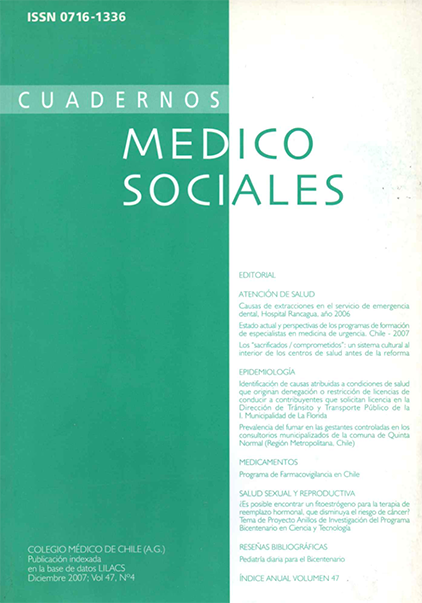Sacrifice and commitment: a cultural system inside health centers (previous to the current health system reform)
Keywords:
Health care, primary care, culture, health workersAbstract
The present document proposes an anthropological interpretation of the prevailing culture in the primary health care Centers (Centros de Salud) of the urban zones of Chile before the Health Service reforms applied by the President Lagos administration came into effect. The existence of a cultural system that influences the quality of care is set forth for consideration. In order to receive good care, the users must follow certain norms, of which the main one is the subordination of its time availability to that of the staff, along with patience and submissiveness. These norms arise from a very deep ideology that is based on the recognition of the sacrifice and commitment implied in health care work that is performed under precarious conditions. “The staff sacrifice themselves in order to provide service, because they are committed to their functions”. This ideology justifies positive and negative consequences. Those users who the do not follow the norms are mistreated and informal networks are generated among the staff, whereby the employees who deviate from those norms are punished; this amounts to a control mechanism. This system allows the health personnel to control and to handle its own time, as well as their relationship with the users; and to justify any inadequate performance.
Downloads
Downloads
Published
How to Cite
Issue
Section
License

This work is licensed under a Creative Commons Attribution-NonCommercial-ShareAlike 4.0 International License.


